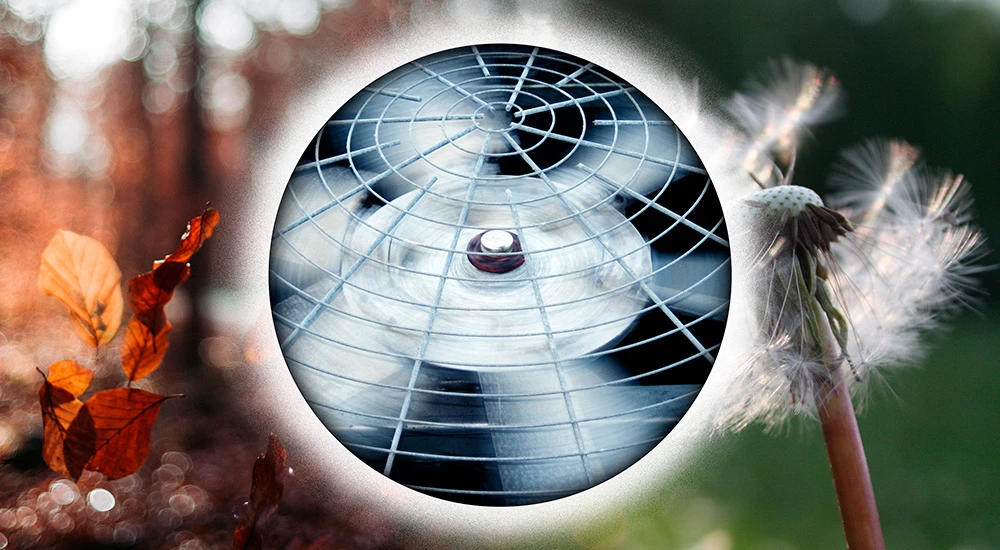Be Kind to Your Condenser Coils

By Todd Ludtke – Master Certified Technician
Tech Tip – Save money and avoid product spoilage with clean coils!
As temperatures drop over the winter months, refrigerated equipment is no longer front of mind, but in fact, this is a time to think about commercial refrigeration maintenance and taking extra care of one of the most vital components of our refrigerators, freezers, and HVAC units. Over the spring and summer, pollen and leaves can block the air flow through your condenser coils, so depending on your climate, both fall and spring are both good times to think about cleaning your coils so you are ready for the summer period.
Understanding Refrigerated Equipment & How to Keep it Running
For any piece of refrigerated equipment to function properly it must be able to breathe. Your equipment’s ‘lung’ so to speak is its condenser coil. For refrigeration to work, a gas/freon must be converted from a gas to a liquid in a cycle. Freon in a gas state cools, and as a liquid it heats. The condenser coil lets this heat go and the cycle continues as required by the thermostat. If your unit cannot ‘let go’ of this heat because it is clogged, then it must work harder. Service Technicians refer to this as an increase in head-pressure which in turn uses more power. Left unchecked, eventually your units will start to ‘trip out’ as the high-pressure switch, which is your equipment fail safe, does its job. This however, does not mean that your compressor will not have been stressed and damaged especially if there have been multiple ‘trip outs’. For certain, this type of issue will shorten the life of your compressor, consume considerably more power and in the worst-case scenario cause a compressor failure.
The good news is that these issues can be avoided by keeping your condenser coils clean. Our recommendation for doing that is as follows.
Outdoor Condenser Coils – For light dirt build-up, nitrogen gas can be used to ‘blow out’ the coils and then they can be rinsed after with water. Remember to check your roof drain before doing this! For heavy build up we recommend a foaming cleaner. Outdoor foaming cleaners will clean much more deeply and will also remove oils and sticky pollen. This type of foam is NOT food safe and requires the foam to be rinsed away after use. Optimally this cleaning should happen at least quarterly.
Indoor Condenser Coils – Once again for light build-up, nitrogen gas can be used. For heavier build-up just like outdoor units a foam can be used for deeper cleaning. However, indoor food safe foam is a different product and does not require rinsing. This cleaning should happen biannually but should be done quarterly in high traffic areas.
Our experience has shown us that by following this advice your refrigerated units work to the original manufacturer specification for longer, decreases both power consumption and the possibility of food spoilage, all of which improved return on investment.
Get Commercial Refrigeration Maintenance Today
If you are unable to complete this type of maintenance internally and need further advice on this topic, please do not hesitate to reach out to your nearest General Parts Group location on (888) 498-1238. We offer reactive maintenance calls, as well as Planned Maintenance programs, which can be tailored to your specific equipment and needs.
